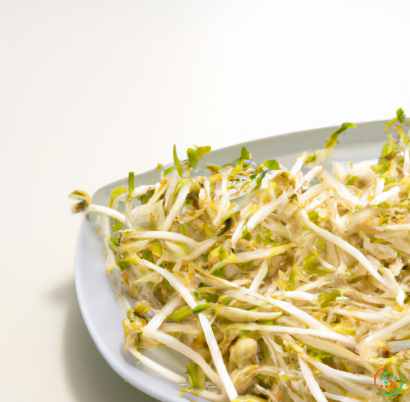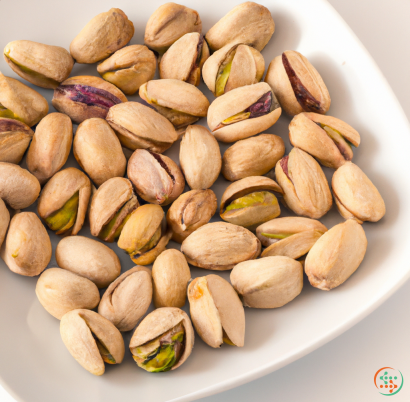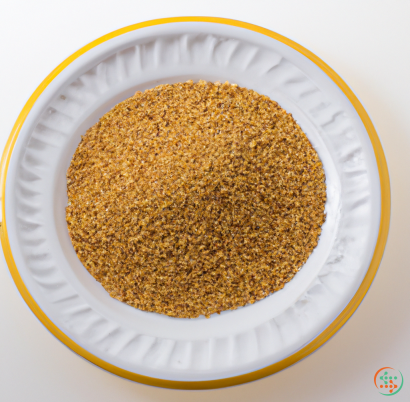Almonds
Almonds are an incredibly versatile and nutritious nut that has helped to provide sustenance to people over the course of centuries. Believed to be one of the oldest domesticated nut, they have their roots in the Middle East, specifically in what is now known as Iran, where they were being used as far ago as 3000 BC. Today, almonds are cultivated in large scale operations all over the world and remain a beloved snacks for both humans and animals alike.
Almonds are a member of the Rosaceae family, meaning that they are related to such items as peaches, plums, and apricots. These nuts grow on trees and start off as soft oval-shaped green shells with a velvety white coating. As the nut matures, the outer-shell turns brown and woody and eventually splits open, revealing a yellowish-tan, circular nut that can range in size from as small as a pea up to an inch in diameter.
The flavor of these nuts varies depending on how they were harvested and processed. The most commonly found type of almond is the “sweet” almond, which is relatively light and mellow with a sweet almond-flavor that some liken to marzipan or nougat. There is also the “bitter” almond which is much stronger in flavor and known for its pungency.
Nutrition-wise, almonds are a powerhouse of essential vitamins and minerals. They are an excellent source of Vitamin E, a fat-soluble vitamin that helps keep your skin healthy while also protecting cells from oxidative damage. Almonds are also packed with magnesium, a mineral that helps promote healthy muscle and tendon contraction; calcium to help your bones stay strong; and even manganese, an essential trace mineral that helps in tiding metabolism.
Almonds also contain a significant amount of monounsaturated fats and are relatively low in saturated fat, meaning that they are an ideal choice for those looking to incorporate beneficial fats into their diet. Additionally, they also provide a notable amount of dietary fiber, which aids in digestion and is beneficial for those trying to lower their cholesterol levels.
The dietetic benefits of almonds explain why they have been such a popular and integral part of cuisine for so many generations. They can be enjoyed raw, toasted, and even placed in a food processor and turned into almond butter, a delicious nut- and sugar-free spread that is surprisingly easy to make. There are also countless recipes out there that feature them as an ascending ingredient, from almond cakes and pastries to overtly spicy Moroccan dishes that include dried fruits, nuts, and almonds as essential components.
In conclusion, almonds are an incredibly nourishing, easily accessible, and tasteful nut that has been sustainably used across cultures for centuries. With so many different types and variations, you are sure to find one that fits your taste buds and nutrition needs! Making them a part of your diet is easy, delicious, and beneficial.
The almond is a species of tree native to the Middle East and South Asia. The almond is also the name of the edible and widely cultivated seed of this tree. The fruit of the almond tree, called a drupe, is not a true nut, but a thickened drupe. The outer layer of thefruit is removed to reveal the edible inner seed, which is considered a nut.
Almonds are a rich source of nutrients, providing a good amount of protein, fiber, vitamin E, magnesium, and manganese. They are also a good source of copper, phosphorus, zinc, and iron.
The major producing countries of almonds are the United States, Australia, Spain, Morocco, and Iran. The United States produces 80% of the world's supply of almonds.
The almond tree grows to a height of 4–10 m (13–33 ft) and has a trunk diameter of up to 30 cm (12 in). The young twigs are green at first, becoming purplish where exposed to sunlight, then grey in their second year. The leaves are 3–5 inches long, with a serrated margin and a 2.5 cm (1 in) petiole. The flowers grow in clusters of 10–25 together; they are white to pale pink, 3–5 cm (1–2 in) diameter with five petals; flowering occurs in mid-winter.
The fruit is 3.5–6 cm (1 3?8–2 3?8 in) long, about half as wide as it is long, and has a pitted surface. The hilum (the scar where the fruit was attached to the twig) is at one end of the fruit, and the opposite end is pointed. There is one seed inside the fruit, with a hard brown coat.
Almonds begin to bear an annual crop in the third or fourth year after planting. Trees reach full bearing five to six years after planting.
The fruit matures in the late summer or autumn, and is harvested when it begins to split open on the tree. One commercial method of harvesting involves shaking the tree so that the fruits fall to the ground, where they are then gathered.
The almond is native to the Mediterranean climate region of the Middle East, from Syria and Turkey to Pakistan.
The almond is mentioned twelve times in the Bible, beginning with Book of Genesis 43:11, when Joseph's brothers went to Egypt to buy grain during a famine and brought with them some almonds.
"And their father Israel said unto them, If it must be so now, do this; take of the best fruits in the land in your vessels, and carry down the man a present, a little balm, and a little honey, spices and myrrh, nuts and almonds:"
The next mention is in Exodus 16:31, when the Israelites were complaining about being hungry in the desert and wished they had food like they had in Egypt.
"And the house of Israel called the name thereof Manna: and it was like coriander seed, white; and the taste of it was like wafers made with honey."
The manna tasted like "wafers made with honey." Some people believe that the manna was actually a type of honeydew, which is a sweet substance secreted by certain insects that live on plants.
The third mention is in Numbers 17:8, when Aaron's rod produced almonds.
"And it came to pass, that on the morrow Moses went into the tabernacle of witness; and, behold, the rod of Aaron for the house of Levi was budded, and brought forth buds, and bloomed blossoms, and yielded almonds."
The next mention is in Deuteronomy 8:8, when the Israelites were again complaining about being hungry in the wilderness.
"A land of wheat, and barley, and vines, and fig trees, and pomegranates; a land of oil olive, and honey;"
The land they were complaining about was a land "of oil olive, and honey." Notice that the almonds are not mentioned this time, only the "oil olive." This may be because the oil from olives was more valuable than the nuts from almonds.
The fifth mention is in 1 Samuel 8:13-14, when the Israelites were asking for a king.
"And he said, This will be the manner of the king that shall reign over you: He will take your sons, and appoint them for himself, for his chariots, and to be his horsemen; and some shall run before his chariots. And he will appoint him captains over thousands, and captains over fifties; and will set them to ear his ground, and to reap his harvest, and to make his instruments of war, and instruments of his chariots."
The Israelites were asking for a king who would take their sons and make them work for him. They were not asking for a king who would give them almonds!
The sixth mention is in 1 Kings 4:33, when Solomon was the king.
"And he spake of trees, from the cedar tree that is in Lebanon even unto the hyssop that springeth out of the wall: he spake also of beasts, and of fowl, and of creeping things, and of fishes."
Solomon was a wise man and he knew about many different things, including trees, beasts, fowl, and fishes. But he did not mention almonds.
The seventh mention is in 2 Chronicles 9:9, when the queen of Sheba came to visit Solomon.
"And she gave the king an hundred and twenty talents of gold, and of spices very great store, and precious stones: there came no more such abundance of spices as these which the queen of Sheba gave to king Solomon."
The queen of Sheba gave Solomon a lot of gold, spices, and precious stones. Again, there is no mention of almonds.
The eighth mention is in Ecclesiastes 12:5, when Solomon was old and wrote his book of wisdom.
"Also when they shall be afraid of that which is high, and fears shall be in the way, and the almond tree shall flourish, and the grasshopper shall be a burden, and desire shall fail: because man goeth to his long home, and the mourners go about the streets:"
In this verse, Solomon is saying that when people are afraid of heights and have fear in their way, the almond tree will flourish. The "long home" is probably the grave.
The ninth mention is in Song of Solomon 6:11, when the bride is speaking to her friends.
"I went down into the garden of nuts to see the fruits of the valley, and to see whether the vine flourished and the pomegranates budded."
The bride went down into the garden of nuts to see the fruits of the valley. Notice that she did not go to see the almonds, but to see the other fruits, such as the vine and the pomegranates.
The tenth mention is in Isaiah 7:23, when Isaiah is talking about the time when the Assyrians will come and invade the land.
"And it shall come to pass in that day, that every place shall be, where there were a thousand vines at a thousand silverlings, it shall even be for briers and thorns."
Isaiah is saying that when the Assyrians come, the land will be overrun with briers and thorns, and the vines and almonds will be gone.
The eleventh mention is in Jeremiah 1:11-12, when Jeremiah is talking about his call to be a prophet.
"Moreover the word of the LORD came unto me, saying, Jeremiah, what seest thou? And I said, I see a rod of an almond tree. Then said the LORD unto me, Thou hast well seen: for I will hasten my word to perform it."
In this verse, the LORD is telling Jeremiah that he has seen correctly, and that He will hurry to fulfill His word. The "word" is probably the prophecy that Jeremiah will give concerning the capture of Jerusalem by the Babylonians.
The twelfth and final mention of almonds is in Ezekiel 27:17, when Ezekiel is talking about the trade that was done in Tyre.
"Tyre did build herself a strong hold, and heaped up silver as the dust, and fine gold as the mire of the streets."
In this verse, Ezekiel is saying that the people of Tyre were so wealthy that they used silver and gold in the streets, just like we would use dirt or gravel.
So, from these twelve verses we can see that the almond was known to the people of Bible times. They were aware of its existence and its use. But, it is not until the book of Ecclesiastes that we find out that the almond tree "flourishes."
| Beta-Carotene | 0.001 mg | |
| Vitamin E | 0.02563 grams | |
| Vitamin B1 | 0.21 mg | |
| Vitamin B2 | 0.00114 grams | |
| Vitamin B3 | 0.00362 grams | |
| Vitamin B4 | 0.0521 grams | |
| Vitamin B5 | 0.47 mg | |
| Vitamin B6 | 0.14 mg | |
| Vitamin B9 | 0.044 mg |
| Calcium | 0.269 grams |
Daily Value 1.3 g
|
| Iron | 0.00371 grams |
Daily Value 0.018 g
|
| Magnesium | 0.27 grams |
Daily Value 0.4 g
|
| Phosphorus | 0.481 grams |
Daily Value 1.25 g
|
| Potassium | 0.733 grams |
Daily Value 4.7 g
|
| Sodium | 0.001 grams |
Daily Value 2.3 g
|
| Zinc | 0.00312 grams |
Daily Value 0.011 g
|
| Copper | 0.00103 grams |
Daily Value 0.9 mg
|
| Manganese | 0.00218 grams |
Daily Value 0.0023 g
|
| Selenium | 0.0041 mg |
Daily Value 0.055 mg
|
| Tryptophan | 0.211 grams | |
| Threonine | 0.601 grams | |
| Isoleucine | 0.751 grams | |
| Leucine | 1.473 grams | |
| Lysine | 0.568 grams | |
| Methionine | 0.157 grams | |
| Cystine | 0.215 grams | |
| Phenylalanine | 1.132 grams | |
| Tyrosine | 0.45 grams | |
| Valine | 0.855 grams | |
| Arginine | 2.465 grams | |
| Histidine | 0.539 grams | |
| Alanine | 0.999 grams | |
| Aspartic Acid | 2.639 grams | |
| Glutamic Acid | 6.206 grams | |
| Glycine | 1.429 grams | |
| Proline | 0.969 grams | |
| Serine | 0.912 grams |
| Galactose | 0.07 grams |
|
| Glucose | 0.17 grams |
|
| Fructose | 0.11 grams |
|
| Sucrose | 3.95 grams |
|
| Maltose | 0.04 grams |
|
| Total Sugars | 0.131141 grams |
per 100g
|
| Palmitic acid (16:0) | 3.08 grams |
|
| Stearic acid (18:0) | 0.7 grams |
|
| Arachidic acid (20:0) | 0.01 grams |
|
| Total Saturated fatty acids: | 3.79 g | |
| Oleic acid (18:1) | 31.29 grams |
|
| Palmitoleic acid (16:1) | 0.24 grams |
|
| Gadoleic acid (20:1) | 0.01 grams |
|
| Total Monounsaturated fatty acids: | 31.54 g | |
| Linoleic acid (18:2) | 12.32 grams |
|
| Total Polyunsaturated fatty acids: | 12.32 g | |
| Campesterol | 0.01 grams |
|
| Beta-sitosterol | 0.13 grams |
|
| Total Sterols: | 0.14 g | |
| Trans-monoenoic fatty acids | 0.01 grams |
|
| Total Trans fat: | 0.01 g | |







